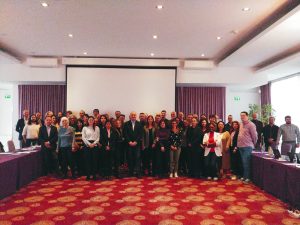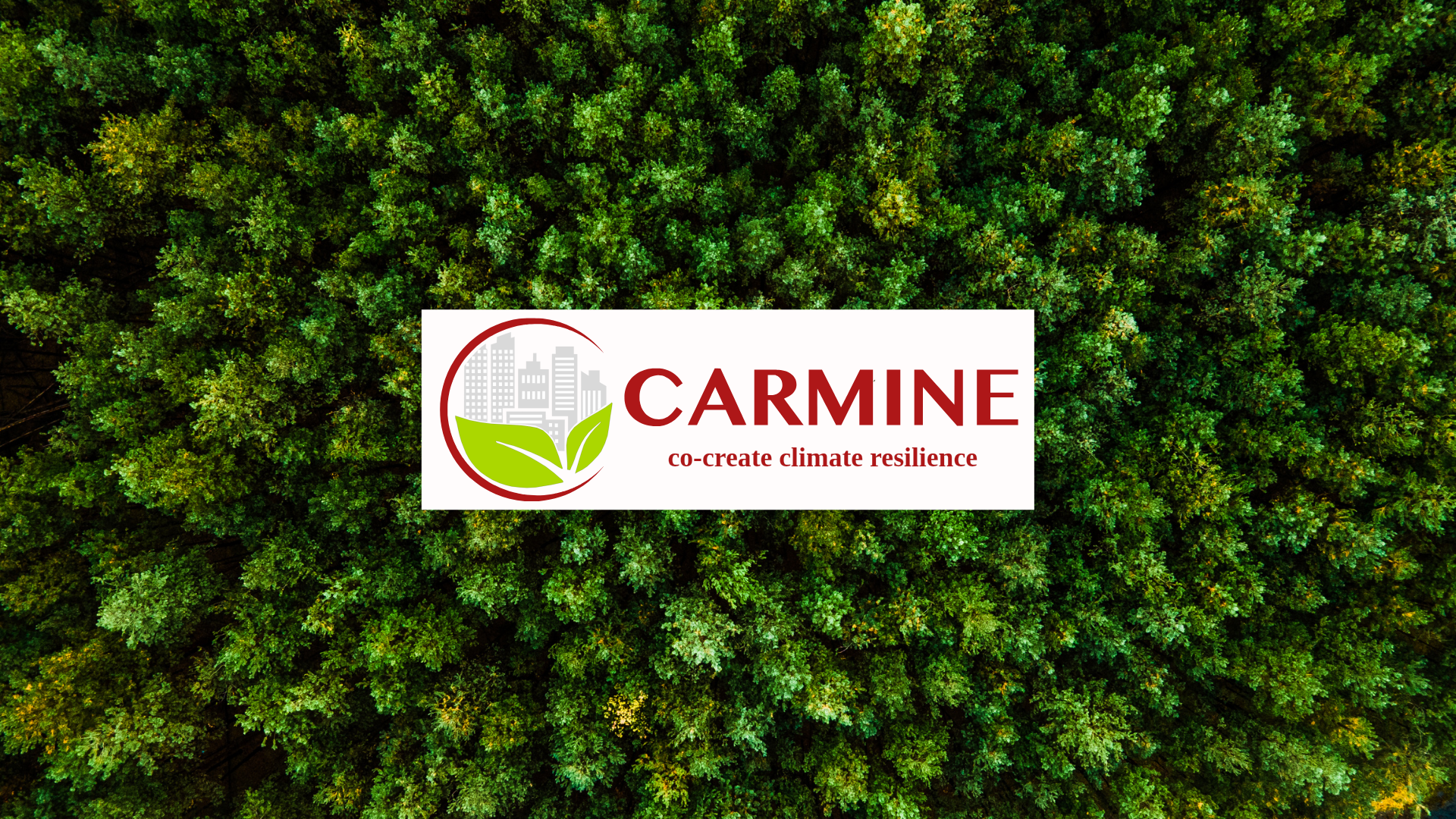Project coordinator from INCDS:

Senior researcher I Dr. Nicu Constantin Tudose
About CARMINE
With a duration of 4 years (2024−2028), CARMINE project will support the adaptation and mitigation capacity of forests in Europe.
The project is coordinated by the Romanian National Meteorological Administration and will be implemented by a consortium of 32 partners from 11 countries including Romania through the “Marin Drăcea” National Research and Development Institute. The project partners will collaborate to help metropolitan communities become more climate resilient by co-producing knowledge-based tools, strategies and plans for enhanced adaptation and mitigation actions.
The main objective of CARMINE
CARMINE’s overarching goal is to help the metropolitan communities become more climate resilient, by co-producing knowledge-based tools, strategies and plans for enhanced adaptation and mitigation actions addressing the Charter of the EU Mission on Adaptation to CC by 2030. To achieve this goal, focusing on a 2030-2035 timeframe and with longer perspectives up to 2050, CARMINE aims to:
(1) Co-create and co-develop decision-support services and guidelines for enhanced resilience and adaptive capacity, including early warning and disaster risk management systems;
(2) Cooperate closely with local to regional communities (stakeholders and users), decision-, and policy-makers (local authorities) to co-develop cross-sectoral frameworks for adaptation and mitigation actions;
(3) Deliver science-based R&I roadmaps for multi-level climate governance supporting local adaptation assessments and plans.
The specific objectives
- To review the available resources, tools, practices, policies, and methodologies, and identify the gaps, challenges and barriers that hamper the successful advance of the resilience pathways in the Metropolitan Regions of Europe (MRE);
- To develop high-resolution risk assessment models linking climate, earth system processes, and socioeconomic drivers, for enriched data fusion and effectiveness of adaptation and mitigation actions in the MRE;
- To co-produce a climate adaptation and resilience framework combining Living Labs (LL) and Digital Twins (DT) approaches that supports decision making processes for resilience and disaster risk management in the MRE, including Nature-Based Solutions;
- To provide state-of-the-art Impact-based Decision Support Services (IDSS) blending climate and environmental data into socioeconomic impact and risk assessments, for user-friendly access to high spatially resolved modelling outputs in support of local adaptation assessments and plans;
- To conduct the participatory development of better coordinated and impactful modelling and risk assessment, in support of roadmaps of R&I priorities on adaptation, informed policies, and cross-sectoral plans towards the 2030-2035 timeframe and beyond (i.e., 2050).
Based on a supply-demand approach, the methodology combines top-down and bottom-up approaches and a multi-sectoral stakeholder participation to co-develops a knowledge-based framework to address climate change adaptation and mitigation in eight MRE (CSA), through bridging the gap between science and practice and co-creating actionable tools, products and services that enhance the climate-resilience of the local communities and support decision-making at a European level.
Case studies
The CARMINE project establishes 8 Case Study Areas and Living Labs to implement a framework based on System Innovation Approach for stakeholder activities and exchange to jointly test, develop and create climate-resilient solutions.
The Case Study Areas are selected in eight countries, focusing on diverse socio-economic profiles, types of communities, vulnerabilities, climate impacts drivers and geographical distribution across Europe: Prague, Leipzig, Funen-Odense, Athens, Barcelona, Bologna, Brașov, Birmingham.
Partners
- Administraţia Naţională de Meteorologie R.A. (MeteoRo), Romania
- MITIGA Solutions SL (MITIGA), Spain
- University of Bucharest – Romania
- National Research Council – Institute for BioEconomy – Italy
- Institute of Computer Science, Czech Academy of Sciences – Czech Republic
- National Institute for Research and Development in Forestry “Marin Drăcea”, Romania
- Ruhr University Bochum – Italy
- Fundació d’Ecologia del Foc i Gestió d’Incendis Pau Costa Alcubierre – Spain
- Albert Ludwigs University of Freiburg – Italy
- Meteomatics AG – Swiss
- National Center for Cartography – Romania
- Technical University of Denmark – Denmark
- Met Office Hadley Centre – United Kingdom
- Athena Research Center – Greece
- National Observatory of Athens – Greece
- Justus Liebig University Giessen – Italy
- World Meteorological Organization – International
- Academy of Athens – Greece
- SDSN Association Paris – UN Sustainable Development Solutions Network – France
- LNH water aps – Denmark
- University of Birmingham – United Kingdom
- Euro-Mediterranean Center on Climate Change – Italy
- B-Kode – Belgium
- ICLEI European Secretariat – Italy
- Municipality of Brasov – Romania
- New Metropolitan Attica S.A. – Greece
- European Central Bank – Italy
- Ministry of Digital Governance – Greece
- Birmingham City Council – United Kingdom
- Stadtwerke Leipzig GmbH – Italy
- Centro Agro Alimentare di Bologna Spa – Italy
- Leibniz University Hannover – The Institute of Environmental Planning – Germany
Contact
Project website: https://carmine-project.eu/ Email: contact@carmine-project.eu. Linkedin, Instagram si Twitter: @carmineproject, @carmineproject si @carmine_project
Newsltter: https://shorturl.at/e3agr




